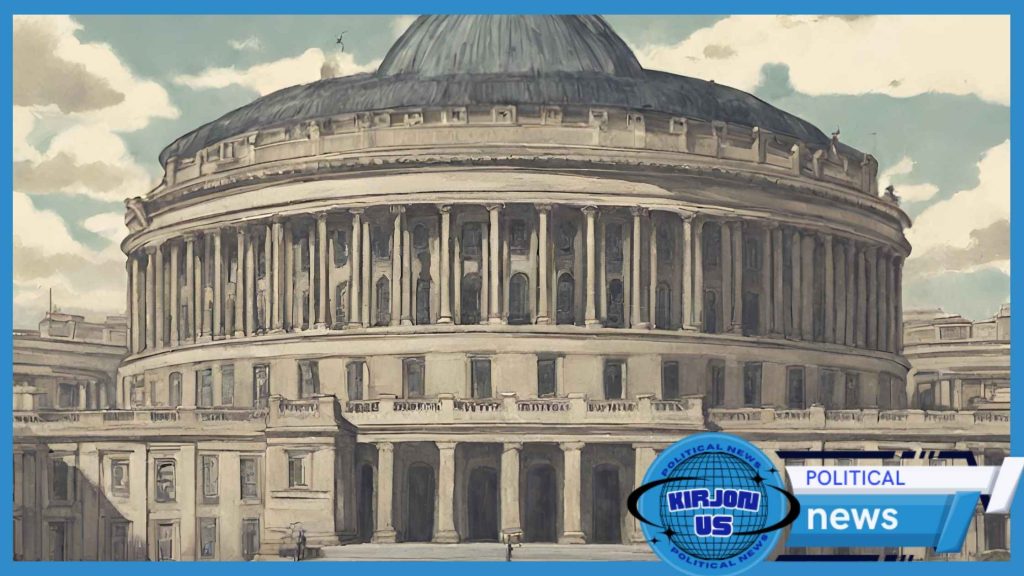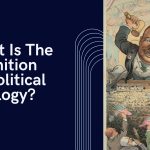Political ideology is a fundamental concept that plays a significant role in shaping societies and political systems. It refers to a set of beliefs, values, and ideals that individuals and groups hold regarding the organization and functioning of a government and the distribution of power within a society.
Political ideologies encompass various perspectives on issues such as economic systems, social equality, individual rights, and the role of government. They provide frameworks through which people interpret political events, formulate opinions, and make decisions.
Understanding political ideology involves recognizing the diverse range of ideologies that exist and their core principles. By exploring these ideologies, we can gain insight into the different ways societies perceive and address political issues. From liberalism to conservatism, socialism to nationalism, each ideology offers unique perspectives on how governments should be structured, how resources should be allocated, and how societies should function as a whole.
This article will delve deeper into the definition of political ideology and its importance. By examining the various types of political ideologies and their influence on society, we aim to provide a comprehensive understanding of this fundamental concept.
Understanding Political Ideologies

In this section, we will provide a comprehensive overview of different political ideologies and their concepts. Understanding political ideologies is essential for comprehending the dynamics of the political landscape and the beliefs that shape it.
Types of Political Ideologies
There are several prominent political ideologies that individuals and groups adhere to. These include:
- Liberalism: A political ideology that emphasizes individual freedoms, equality, and the role of the government in promoting social progress.
- Conservatism: An ideology that advocates for the preservation of traditional values, institutions, and limited government intervention.
- Socialism: A belief system that advocates for collective ownership and control of resources, as well as the establishment of social equality.
- Nationalism: An ideology based on loyalty and devotion to a specific nation, often promoting national interests and identity.
Political Ideology Definition and Examples
Political ideology refers to a set of beliefs, values, and principles that guide an individual or group’s political behavior and decision-making. It serves as a framework for understanding the role of government and society.
For example, liberalism promotes individual rights, such as freedom of speech and equality before the law. Socialism, on the other hand, advocates for wealth redistribution and government control over key industries.
Understanding Political Ideology
Political ideology shapes how individuals view the world and guides their attitudes towards social issues, economics, governance, and other aspects of society. It influences policy decisions and strategies employed by political parties.
By delving into the concept of political ideology, one can gain insights into the motivations and goals of different political movements and leaders. It allows for a deeper understanding of the complexities of politics and the diverse perspectives that exist.
By the conclusion of this section, readers will have a comprehensive overview of political ideologies, including their types, definitions, and examples. This understanding will serve as a foundation for further exploration of the influence of political ideology on society, which we will examine in the next section.
The Influence of Political Ideology on Society

Political ideology plays a significant role in shaping various aspects of society. It has a profound influence on public policy, governance, and decision-making processes. Different political ideologies guide the principles and values upon which these processes are constructed.
One of the key impacts of political ideology is its effect on public policy. The beliefs and values associated with different ideologies drive the formulation and implementation of policies that shape the direction of a society. For example, a conservative ideology may prioritize limited government intervention and fiscal responsibility, leading to policies that focus on deregulation and lower taxes. On the other hand, a liberal ideology may advocate for social equality and government intervention to address socioeconomic disparities, resulting in policies that support progressive taxation and social welfare programs.
Moreover, political ideology influences governance by shaping the structure, dynamics, and functions of government institutions. An ideology’s stance on the concentration of power, accountability, and representation determines the organizational and decision-making processes within a government. For instance, a democratic ideology emphasizes the participation and voice of citizens, leading to systems with multi-party elections, separation of powers, and checks and balances. In contrast, an authoritarian ideology may concentrate power in the hands of a select few, limiting citizen participation and creating centralized decision-making structures.
In addition to policy and governance, political ideology has societal implications that extend beyond the realm of government. These ideologies interact with social, economic, and cultural factors to shape the overall landscape of society. They influence public discourse, social norms, and cultural values, leading to the formation of collective identities and societal divisions. For example, political ideologies may influence attitudes towards immigration, social justice, gender equality, and environmental protection.
By understanding the influence of political ideology, individuals gain insights into how ideologies shape the fabric of society. It allows them to analyze the motivations behind policies, evaluate the effectiveness of governance structures, and engage in informed discussions about the potential benefits and drawbacks of different ideological approaches.
Conclusion
In summary, political ideology is a fundamental concept that shapes the beliefs, values, and actions of individuals and groups within society. Throughout this article, we have explored the definition and importance of political ideology, understanding the various types that exist, and their impact on society.
Political ideologies represent a range of viewpoints and perspectives on how societies should be governed and structured. From liberalism’s emphasis on individual freedom and limited government intervention to socialism’s focus on equality and collective ownership, these ideologies hold distinct principles and objectives.
The influence of political ideology extends beyond theoretical debates. It directly impacts public policy, governance, and decision-making processes, shaping the overall landscape of society. By comprehending these ideologies, individuals can engage in informed discussions, contribute to democratic processes, and better understand the complexities of political systems.
FAQ
What is the definition of political ideology?
Political ideology refers to a set of beliefs, values, and principles that shape an individual’s or group’s views on political issues and guide their actions and decision-making. It encompasses a range of perspectives on governance, economics, social issues, and the role of the state in society.
What are the types of political ideologies?
There are various types of political ideologies, including liberalism, conservatism, socialism, communism, fascism, anarchism, and nationalism. Each ideology embodies a distinct set of beliefs and goals, shaping the way individuals and groups approach political, economic, and social issues.
How can we understand political ideology?
Understanding political ideology involves examining its foundations, core principles, and objectives. By studying the historical context and theoretical frameworks of different ideologies, one can gain insight into their implications and manifestations in real-world politics. Familiarizing oneself with specific ideologies’ key thinkers and examining their application throughout history can also aid in grasping the nuances of political ideology.
What is the influence of political ideology on society?
Political ideology significantly impacts society by shaping public policy, governance, and decision-making processes. Different ideologies prioritize different values, such as individual liberty, social equality, economic growth, or cultural preservation. They guide the development of laws, social programs, and economic policies, influencing the distribution of power, resources, and opportunities within a society.







